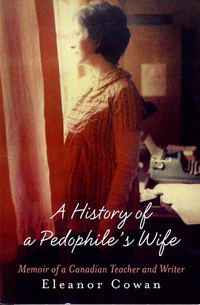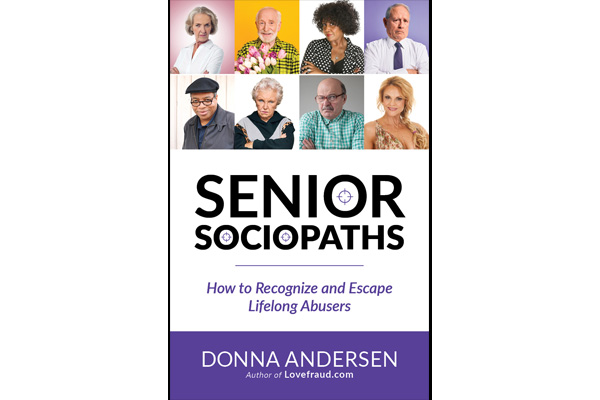By Eleanor Cowan

This is how the bad behavior looked then:
The first time Leah didn’t show up for dinner, I was a little hurt. When I called, she offered profuse, sincere apologies — she’d forgotten to check her agenda book, she said.
“Okay,” I said, “Grab a cab. I’ll keep our meal warm.” No, that couldn’t happen either because she was just about to see a client. Again, sincere apologies.
The second time, grateful to Leah for lending her car to my daughter for a driving lesson, I prepared her favourite, an eggplant stir fry on Jasmine rice. Again, she didn’t come. “Leah! Your delicious meal is on the table. Where are you?” Again, genuine apologies. She was maxed “beyond human comprehension” and had lost track of time.
“Leah, our friendship is important to me. What’s going on?” I protested a month later. This is time number three.
My private thoughts: Leah no longer finds our visits a priority. Other appointments come first. I judged that our friendship was no longer as significant as it once was to Leah. Feeling dismissed and disappointed, I quietly stepped back.
Similar was the decades-long issue of a sister who caused upset whenever she got together physically with any of her siblings. Even as a child, and then a young girl, Ivy guarded divisions. “My friends are my friends,” she’d insist. “Stay away. Find your own friends.”
Later, in our young adulthood, Ivy moved to study in the same city as I and took to calling me daily for small services. She’d ask for a specific lipstick shade. Any variation meant another trip to the store to return the item. Or to bring her a meal while she studied. There was keen disappointment if the fries were soggy. One day, my boss called me aside to say that if my sister continued calling our office so often, he’d have to let me go.
Later, after I had children, Ivy’s rare visits were marked by hurtful criticisms. When my 5-year-old sweet little girl showed her aunt her new kitten, she was spoken to harshly. “You’re not holding the kitten right, Sara! Your tight grasp is harming the poor thing!”
My daughter burst into tears, and when I defended her, my sister got up and left in a major huff. Again and again, her presence meant pain — and yet I kept hoping for change.
Over the decades, Ivy, now a university lecturer, alternated between odd behaviours and beautifully wrapped care packages sent with love. Every few years or so, while the long-distance option prevailed, I’d imagine that an in-person visit would be “better this time.” Wrong again. Another disaster.
Once, after a long train trip and not long after I’d given birth, Ivy insisted I scour her neighbourhood hardware stores to find a special cleanser. She wanted me to kneel and scrub the rust spots in her bathtub — stains that, she said, were “driving her insane.” I did it – sadly.
Only now do I see what I was accommodating.
Now, I see the bad behavior with a clearer lens
I’ve learned a lot.
Over a year after I’d stepped back from my friendship with Leah, her daughter called me to ask if I would please visit. Her mom had been diagnosed with early dementia, and her illness now required her to live in a nursing home. Those forgotten dinners weren’t signs of disrespect — they were symptoms of her illness. They had nothing to do with me.
Leah has passed away now, and I have learned an important lesson.
Similarly, my sister, a chronic workaholic, was diagnosed with Alzheimer’s Disease. She also lives in a nursing home, one she smartly arranged for herself when she noticed profound forgetfulness.
She calls me nightly around 10 p.m., at bedtime, to share her distress, loneliness and anxiety. Every evening, I read to her the same Rumi poem, and she is thrilled afresh at its beautiful consolation. I tuck her in every night, long distance, as she still prefers.
I wish I had known, back then, the difference between character flaws and symptoms.
I wish I had been able to see that odd, hurtful behaviours are symptoms and not failings or conscious disrespect of me or anyone else.
Recently, when my sister asked me why my adult children don’t visit her, I didn’t say that they don’t know her or that they were hurt by her on the rare occasions they met their aunt.
I know now that decade after decade, Ivy suffered from a condition, perhaps rooted in a trauma she once hinted occurred in a bathtub, or a personality disorder she denied or couldn’t control.
It also occurred to me that my sister deserves some praise. In forging her own path, Ivy became friends with someone with whom she would have to respect conventional boundaries.
She and her friend’s family celebrated decades of annual festivities, holidays, trips, birthdays and special events over the years together. They had lots of fun. While Ivy excluded her biological family from all of these, I see now that by choosing a family in which she would have to behave respectfully, Ivy gave herself a family— a long-standing, respectful connection she sustained for decades, one that she was unable to negotiate with her biological relatives.
Also, importantly, my children and I were protected from her behaviours. Today, I am grateful to Ivy for that. Perhaps intuitively, she stayed away to protect us. I have a reason to be grateful that, given her disorder, my children and I were spared repeated wounds.
I regret judging Leah. I regret stepping away from her, but I don’t regret stepping away from my sister’s behaviours.
Today, Ivy is grateful for our nightly chats, poem readings and encouragement as she loses her abilities, and I am grateful too, that I can walk with her at the end of our lives.
Today, I’m still cautious when I see odd behaviour, but I’m slower to judge. I look for symptoms instead of flaws.




































 More evidence that psychopaths do not ‘burn out’
More evidence that psychopaths do not ‘burn out’
Donna Andersen
Emilie 18 posted the following comment in the Forum.
Eleanor Cowen posted a beautifully said piece in the Blog about looking at hurtful actions as symptoms. For some reason I was unable to post a reply there — so will here…. I wanted to thank her for reminding me that a bit of grace goes a long way. My dear sister in law is in final stages of Alzheimers, but I remember about 6 years ago I had started to withdraw from her because of hurtful, snippy remarks she made during family get togethers. When our brother eventually gave us the diagnosis, it all became clear — that wasn’t the beloved, sweet, funny, loving lady who had married my brother — she was gone. I should have seen the symptoms. Two years ago my sister was diagnosed with a painful neurological disorder (Polymyalgia rheumatica) and she would often snipe at me when we talked – but learning from my SIL, I did not take it personally – it was the pain talking. So, yes – looking at some behaviors as symptoms makes sense, and should probably be the first place we go when people who should be loving suddenly are not.
But there is still a component of self-protection that comes into play. Even when disease or pain is the underlying cause of behavior changes, just how much should you allow into your life? Sometimes withdrawal is the safest place to go. For those of us who have been emotionally and psychologically damaged by other’s behavior, sometimes it is the only choice. My sister is better now – therapy and medication controls the worst of the PMR, and we have talked about boundaries – and I have gotten better at saying “stop – not acceptable”. But I am still wary around people who are fairly new in my life – watching for actions that cannot be explained by pain or disease, and walking away when I need to.
eleanoreliza1234
What a beautifully composed response by Emilie 18! Reassuring to know that others have experienced the same. Thank you, Emilie.